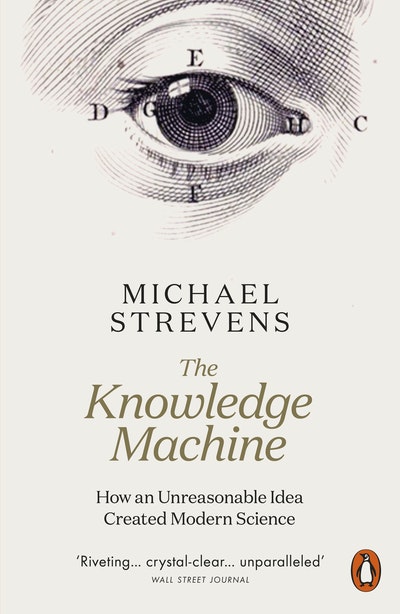The Knowledge Machine
How an Unreasonable Idea Created Modern Science
- Published: 1 October 2020
- ISBN: 9780241205792
- Imprint: Penguin eBooks
- Format: EBook
- Pages: 368
Powerful, bracingly argued and important. There is something here for everyone -- for the expert, who will be challenged to rethink what science really is; for the layperson, who will rejoice in Strevens's deft and witty storytelling; and for the student, who will find a friendly and authoritative guide to Newton, Einstein, Popper, Kuhn, and all that.
Jim Holt, author of 'Why Does the World Exist?'
The best introduction to the scientific enterprise that I know. Its brevity and simplicity cannot conceal the boldness of its conception, the extraordinary scope of its ambition. A wonderful and important book.
David Wootton, author of The Invention of Science
A stylish and accessible investigation into the nature of the scientific method.
Nigel Warburton, Philosophy Bites
This elegant book takes us to the heart of the scientific enterprise.
David Papineau, King's College London, author of Knowing the Score
This book is a delight to read, richly illustrated with wonderfully told incidents from the history of natural science.
Nancy Cartwright, University of California San Diego
Beautifully lucid and accessible. A rare achievement, it is entertaining and edifying all at once.
Paul Boghassian, New York University
An engaging must-read.
Manjit Kumar, author of Quantum
The most stunningly illuminating book of the last several decades regarding the all-important scientific enterprise. Not only profoundly insightful but rollicking good fun.
Rebecca Newberger Goldstein, author of Plato at the Googleplex
As thrilling to read as it is important. Captivating.
Nathan Heller, New Yorker staff writer


